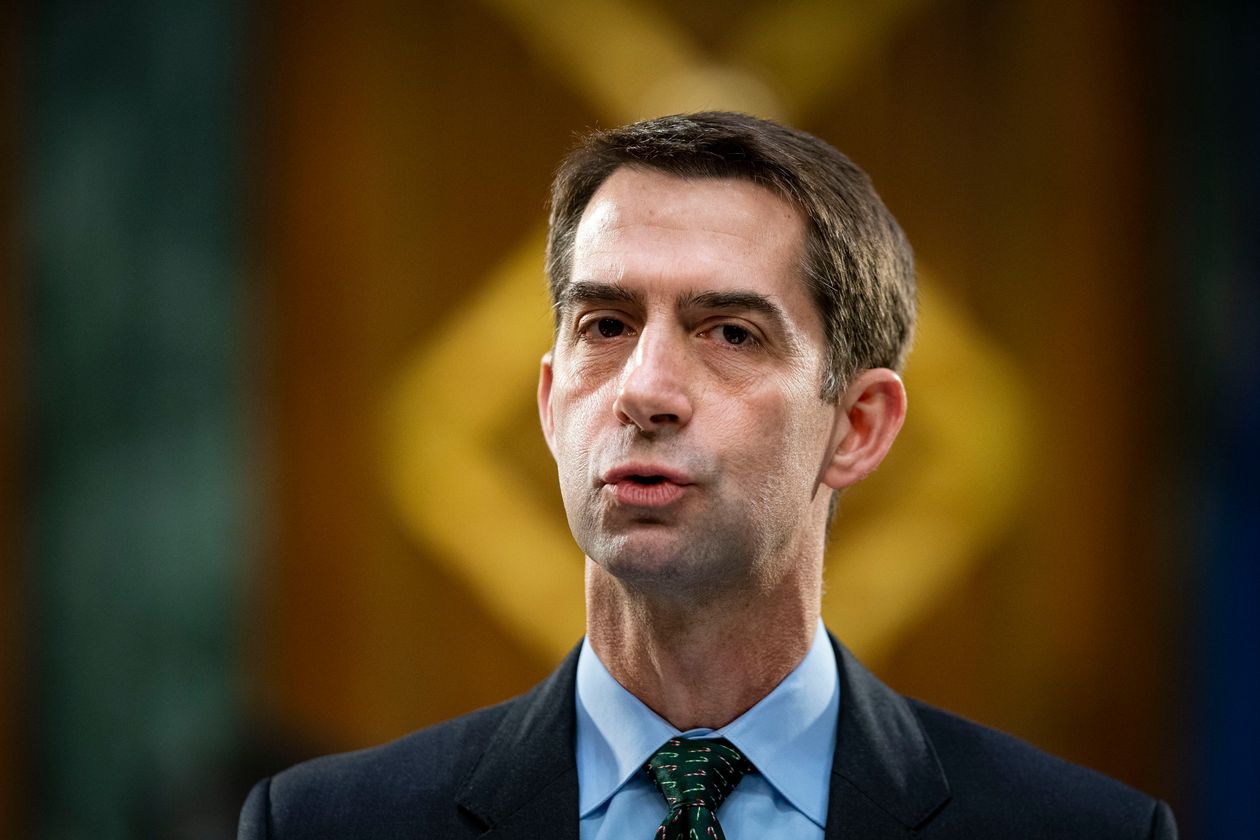By: Jimmy Quinn – nationalreview.com –
Last month, Senator Tom Cotton published what might be the most important book of the 2020s on China.
There are many books that offer a look at the challenges posed by the Chinese Communist Party under Xi Jinping, by journalists, China experts, and national security practitioners. Each of those volumes provides an intensive, impressive look at specific aspects of modern China and the dangerous intentions of the Leninist regime that runs the country.
Cotton, now one of the most senior figures in the Senate, has done something different. He has made the case, in 169 tightly argued, jargon-free pages, that China is an evil empire and that America needs to prepare for the worst.
Other lawmakers have tried to start pressing discussions with the American people about the Communist Party’s malevolent intentions, with some success. The House Select Committee on the CCP conducted hearings outside of Washington during the previous Congress, most memorably in New York City, outside of the Chinese police station; this approach earned it, and the policy issues it raised, some local media coverage. Yet a nationwide public discussion about the Chinese Communist Party’s malign activities is still lacking.
In Seven Things You Can’t Say About China, Cotton brings Washington’s reckoning with Beijing’s aggression directly to all Americans rather than just to those who tune into the minutiae of Beltway foreign policy debates. Already, it has found some success, rocketing to the top of the New York Times nonfiction bestsellers list soon after its release.
While his project condenses the theory of the case offered by conservative China hawks, it doesn’t simplify any of their arguments. It leans heavily on the perspectives of well-regarded experts, many of whom are the authors of other China books, and his ongoing dialogues with the savviest China hands on the right. He’s bringing their insights to an audience that these experts don’t already reach.
The book, therefore, covers, in granular detail, everything from Governor Gavin Newsom’s long-running history of interactions with CCP entities to the acts catalogued in court documents filed in the prosecution of individuals accused of industrial espionage. Another standout section: Cotton manages to capture in just a few pages the pure evil of CCP official Chen Quanguo’s 21st-century totalitarian governance model, which originated in Tibet, was brought to genocidal perfection in Xinjiang, and might someday be exported beyond the PRC.
Cotton warns in the final chapter — titled “China Could Win” — that the annexation of Taiwan would, ultimately, cement Beijing’s quest for global primacy, starve America of the global trade opportunities that have sustained the Pax Americana, and turn the United States into an “economic colony to a dominant China.” Not to mention the catastrophic results of a Chinese war against Taiwan.
Many of us might take it for granted that China is an aggressive adversary of the United States, but it’s more important than ever that Cotton makes this case to a mass audience now.
Two months into the second Trump administration, the China threat has been relegated in the headlines, which is understandable given the fact that the president’s early priority in office is to end two ongoing wars. But Beijing’s threats have continued to intensify. In February, the People’s Liberation Army conducted surprise live-fire drills off the coasts of Taiwan and Australia. A few weeks later, in response to Trump’s new tariffs on Chinese goods, Beijing’s embassy in Washington posted a message warning that it is ready for “any type of war” with America.
As Cotton points out, each new iteration of the Pentagon’s annual China Military Power Report describes disturbing new developments in China’s pursuit of a world-class nuclear arsenal and international basing access.
On the home front, meanwhile, the fentanyl crisis persists, fueled by Chinese government export subsidies identified in an investigation by the House select committee. (It’s a smoking gun that didn’t receive enough attention last year; Cotton makes sure to tell his readers about it.) Also ongoing are the Communist Party’s savvy efforts to cultivate deep and abiding alliances with American politicians at the state and local levels and leverage U.S. business leaders to support its global agenda.
As the title of Cotton’s book suggests, there are obstacles to sounding the alarm about Beijing’s intentions. Thankfully, many of these obstacles have been cleared in recent years with the help of Xi’s disturbing conduct and new revelations about the Communist Party’s malign behavior.
Cotton has certainly been told numerous times that there are things he can’t say about China — last year, left-wing journalists smeared him as a racist ignoramus for questioning TikTok CEO Shou Zi Chew about his obvious alignment with Beijing. The executive previously worked at TikTok parent ByteDance, which is steered by an internal CCP committee, and at Chinese mobile device maker Xiaomi — whose products come preloaded with censorship software, per the Taiwanese authorities. “The Chinese Communist Party knew exactly what they were getting with Chew at TikTok,” Cotton writes.
Most importantly, he was famously on-target when he said, five years ago, that Covid likely originated from a lab leak. But his early warnings about Beijing’s cover-up were dismissed in the media and many elite pockets of society.
Now, as more intelligence services back Cotton’s assessment, he has earned the right to say I told you so. If his warnings in Seven Things aren’t heeded this time, the world will likely pay an even greater price.
To see this article in its entirety and to subscrive to others like it, please choose to read more.
Source: Tom Cotton’s China Book a Critical Message about Beijing’s Threats | National Review
 Listen Online
Listen Online Watch Online
Watch Online Find a Station in Your Area
Find a Station in Your Area








 Listen Now
Listen Now Watch Online
Watch Online
